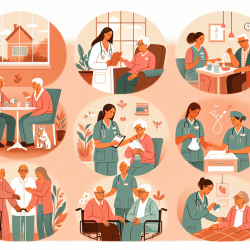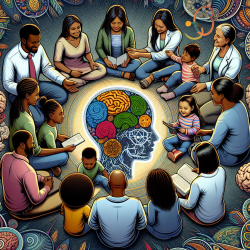In the bustling city of Kisumu, Kenya, a phenomenon known as 'tarmacking' encapsulates the hopes and struggles of many young volunteers seeking empowerment and development. The research article, ‘TARMACKING’ IN THE MILLENNIUM CITY: SPATIAL AND TEMPORAL TRAJECTORIES OF EMPOWERMENT AND DEVELOPMENT IN KISUMU, KENYA, delves into these intricate dynamics. For practitioners in the field of speech language pathology, understanding these concepts can significantly enhance the impact of their work, particularly when delivering online therapy services through platforms like TinyEYE.The study by Ruth J. Prince reveals how volunteers in Kisumu navigate the city's numerous health interventions, often organized by NGOs and transnational groups. These volunteers, despite facing numerous challenges, are driven by a strong sense of empowerment and a desire to move forward. The term 'tarmacking' refers to the process of persistently seeking opportunities, often through volunteering, in the hope of securing stable employment and improving their socio-economic status.For practitioners, this research underscores the importance of fostering a sense of empowerment in children and young clients. Here are some actionable insights derived from the study:
- Encourage Participation: Much like the volunteers in Kisumu, children should be encouraged to actively participate in their therapy sessions. This participation can instill a sense of agency and control over their own development.
- Promote Skill Development: Just as volunteers gain certificates and skills through various workshops, children should be given opportunities to develop new skills and celebrate their achievements. This can be facilitated through interactive and engaging online therapy sessions.
- Foster a Growth Mindset: The research highlights the volunteers' belief in moving forward despite setbacks. Instilling a growth mindset in children, where they view challenges as opportunities to learn and grow, can lead to better long-term outcomes.
- Create Supportive Networks: The sense of community among volunteers is a key factor in their resilience. Similarly, creating a supportive network for children, involving parents, teachers, and peers, can enhance their therapy experience and outcomes.
Moreover, this study encourages practitioners to engage in further research and data collection to continually improve their methods and approaches. Understanding the socio-cultural contexts of the populations they serve can lead to more tailored and effective interventions.To read the original research paper, please follow this link:
‘TARMACKING’ IN THE MILLENNIUM CITY: SPATIAL AND TEMPORAL TRAJECTORIES OF EMPOWERMENT AND DEVELOPMENT IN KISUMU, KENYA.










